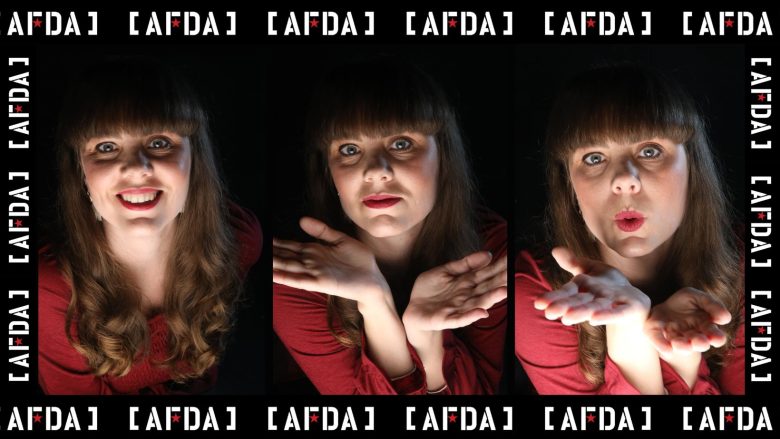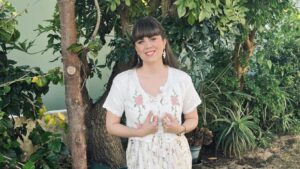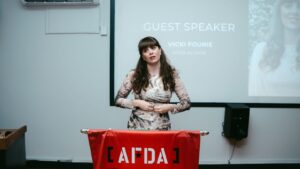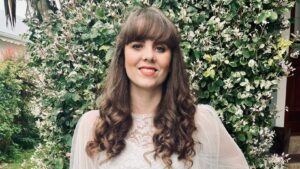In the last few years, the arts and culture sphere has been metaphorically compared to a mountain. A mountain that needs to be navigated, climbed, and conquered. This steep ascend represents the significant challenges before the artist’s path. There are obstacles to be overcome through guts, determination, and consistent effort. Upon reaching the summit of the first mountain, the artist realizes with a sense of dread and nervous excitement the extent of the journey that’s still ahead: numerous more mountains to be conquered. Such is the nature of the artist’s career. “The film industry is constantly evolving, with new technologies, distribution platforms, and audience preferences shaping the landscape,” writes Amber M. Sherman. “Professionals in the field must stay updated and adapt to these changes to remain competitive and relevant.” (Sherman, 2024)
The South African entertainment industry offers numerous possibilities and opportunities, yet it does not provide a stable environment to thrive professionally. The entertainment business – which includes film, television, music, video games, and related fields – is characterized by its unpredictability and instability. When finished with a project or assignment, the industry immediately packs up and progresses to the next challenge, adapting and shape-shifting in all the necessary forms. This results in a competitive and dynamic environment that is unsuitable for those lacking resilience. “The South African film industry employs an estimated 20,500 people while the cultural economy accounts for 6.72% of jobs in the country, a figure higher than the mining sector. This explains why so much public attention is being paid to expanding the film and TV sector.” (Macnab, 2024)
At the age of two years, I was diagnosed with profound hearing loss. Despite this setback, my parents opted to raise me in a mainstream hearing environment. While this decision could be perceived as advantageous, it manifested in a significantly increased effort on my part to perform and excel on the same level as my hearing peers. I worked twice as hard as the hearing students. Molly Senecal’s father told her when she was young, “Because you are deaf, you will have to work twice as hard for everything. For an education, for a job, and for all the things you want in life. This is not fair, but the world was not built for people like you. It was built for people who do not have a disability.” (Senecal, 2019) I fully identify with that statement, and it’s my truth.
When I started high school, I was still enrolled in the same ACE school (Accelerated Christian Education), which is an American-based Christian learning system. Highly academic, this system requires its students to get an average of 80-90% per test, otherwise, it is regarded as a ‘fail’ and the student has to repeat the work all over again. Each morning, the student can set ‘goals’ for themselves; if and when their work is finished during school hours, they have no homework whatsoever. This was a great motivator for me, and I quickly learned how to discipline myself and focus fully on the task at hand.
During this period, I also developed an affinity for reading and writing, while at the same time excelling in ballet, drama, and tennis. The adolescent years are a critical phase for self-discovery. I was an overachiever, and I harboured aspirations of becoming an accomplished writer and actress.“In the short term, through sheer drive and determination, overachieving leaders may be very successful, but there’s a dark side to the achievement motive. By relentlessly focusing on tasks and goals… (it) can, over time, damage performance.” (Spreier, Fontaine and Malloy, 2006)
After I finished school, I attained the title of Miss Deaf South Africa. The plan was to gain this title and use it as a platform to become a well-known celebrity. In my mind’s eye, this beauty pageant title was the entry gateway to the arts and culture sphere in South Africa.
As Miss Deaf SA, I accepted every opportunity and I said yes to every single appointment, hoping that opportunities would emerge in the entertainment industry. I held meetings with various directors and producers in the Afrikaans industry, all of whom assured me they would provide an opportunity when circumstances allowed. One year turned into two, and soon five years had elapsed. Hopeful promises turned into empty promises. Perhaps the fault lay within my networking tactics. “Networking in film isn’t talking to every last person you encounter and figuring out how they can advance your career,” writes Amber M. Sherman. Instead, Sherman shares the key to healthy networking: “(Networking) is just looking for the people you connect with.” (Sherman, 2024b) My work ethic was not sustainable, and within five years I had total burn-out. I was depleted, done, finished, kaput.
Just before I pulled the plug entirely, I had secured the leading role in the theatrical production “Kinders van Stilte,” an Afrikaans adaptation of “Children of a Lesser God.” I performed opposite two award-winning actors from “7de Laan.” However, the role required me to portray a mute character who only used sign language as a means of communication. Subsequently, I appeared in a music video for a prominent Afrikaans rock band, Straatligkinders. Once again, I was required to talk (or rather, sing) in sign language. Two additional roles became available to me – one in a television series and another in a film. Both, however, demanded the use of sign language. I found myself being typecast, and I was uncertain how to extricate myself from this discriminatory cycle. How and why had I arrived at this situation? The d/Deaf spectrum is extensive and diverse, so why was it deemed necessary to confine me to the singular category of exclusively using sign language as a means of communication? As a motivational speaker and Miss Deaf SA, I had always used my audible voice; sign language had never been a consideration for me. Being typecasted like this felt like a major step backward for me. “While the assumption seems to be that typecasting is a sign of an actor’s limitation, a concession to commercialism, and the antithesis of art and originality, we also expect actors to stick to type and often reject actors’ efforts to play against type,” writes Pamela Robertson Wojcik in her thesis. (Wojcik, 2003) In my critical viewing of the world around me, I now realize that it is my responsibility to educate and equip others when it comes to the d/Deaf spectrum. I have the knowledge, power, and capability to do just that. In that way, society can be transformed.
By the conclusion of that fifth and sixth year, I underwent my first and second cochlear implant procedures, which significantly improved my hearing and speaking abilities. Then I made the heartbreaking decision to completely withdraw from the entertainment industry. A conventional 9-to-5 occupation appeared increasingly appealing, offering more certainty, stability, and minimal surprises. The prospect of receiving a consistent and predictable monthly salary was even more appealing. During the decade that followed, I engaged in various other pursuits, steering clear of the entertainment industry. I no longer did freelance writing; I rarely ever did motivational talks; and I said no to fund-raising endeavours. I moved further and further away from the arts and entertainment sphere.
Upon relocating to Jeffrey’s Bay in 2021, my former aspirations started to resurface. I launched a creative writing school, and I realized that I was always meant to write, research, and tell stories. I considered the possibility of studying creative writing. To my joy, found out that AFDA finally offers a Bachelor’s degree in it. My application was submitted and accepted, and this year I found myself in the glorious position of doing my Honours in Motion Picture with a focus on screenwriting.
My previous experiences in the South African entertainment industry significantly influenced the selection of my research thesis topic, which is based on d/Deaf on-screen characters and how they can be portrayed in accurate ways. I wanted to examine the diverse stereotypes and misconceptions associated with d/Deaf actors and/or characters, to identify strategies to overcome these challenges. I believe this research will encourage and challenge other filmmakers to adopt a more comprehensive and inclusive approach when developing d/Deaf narratives. Through this research, I intend to write and create narratives that will facilitate my return to acting and writing, fulfilling a long-held ambition and desire since the inception of my first career.
Last year, I began experiencing a decline in auditory function. This deterioration was sudden and progressive, which was atypical, as such a pattern is not consistent with the expected course of cochlear implants. Given the advancements in technology, the hearing aids connected to my cochlear implants are supposed to improve, not decrease. Following consultations with my audiologist and ENT doctor, we couldn’t determine the cause and I had to seek consultations from various other specialists. Eventually, I ended up at an osteopath in Port Elizabeth, and I was ultimately diagnosed with adrenal fatigue. “When somebody has chronic stress (whether emotional, physical, or mental) their adrenal glands can’t keep up producing enough hormones like cortisol…” (DiGiacinto and Frothingham, 2018)
There is a reason for including this diagnosis in this essay. Turns out, there is a direct link between my adrenal fatigue and the way I maintained my career in my early twenties. Because of the excessive work and commitments that I undertook, the burnout that I experienced had been adrenal fatigue all along. I had never recovered from it; in fact, it only got worse as the years progressed and even more trauma and stress followed. Burnout is a horrible, terrible thing, and it takes years to recover from it. It affects one’s work capabilities and emotional capacities, and eventually, it takes its toll on the body. In my case, the hearing loss that I experienced last year was just one of the many symptoms.
This diagnosis has forced a re-evaluation of my approach to managing responsibilities. I am no longer a young woman in her early twenties starting fresh and new in a demanding industry; I am older and wiser. I must maintain personal and professional accountability when it comes to saying yes – and no – to every opportunity that comes my way. They might all be good opportunities, but not everything will be great and beneficial to me. Prioritizing spiritual, emotional, and physical well-being is a higher priority. My behaviour, thinking, beliefs, and actions have to change if I want to have different results the second time around.
Wisdom and maturity will require me to navigate the waters of entertainment slowly and carefully. I have numerous projects and aspirations that I wish to take on when I finish my Honours degree, but I look at it differently now. While the natural inclination may be to overextend oneself, this approach would be erroneous and unsuitable for me. My first burnout resulted in a decade-long setback in my life. The aim now is to approach this arts and culture mountain in a holistic and self-sustaining way. “Holistic living means having balance in your mental, physical, emotional, and spiritual being. It is about keeping harmony in all areas of your life and approaching healing from the perspective of being whole.”(https://bestoahumassage.com/, n.d.) Burnout must be avoided at all costs, as its consequences can take years to recover from. It is just not worth it to overextend oneself on the altar of any kind of career.
My decision to pursue a career in the arts and culture sector stems from a long-standing interest in writing, literature, television, and cinema that developed during my high school years. Writing and acting out stories provides a sense of daily purpose and fulfilment. The South African film and television industry has experienced significant growth in the last couple of years, which is why I have pursued my degree at AFDA. “There are several key reasons why international productions head to South Africa…” writes Geoffrey Macnab. “Strong financial support is one… The second big draw is the country’s studio facilities, which are fast expanding. Then there is the crew base, burgeoning post-production sector, favourable exchange rate, and warm weather.” (Macnab, 2024) The aim of this degree is also so that I can work overseas should the opportunity ever arise. Obtaining my Master’s degree next year will also facilitate applications for academic positions at universities. There is a growing need and desire to see the expansion of creative writing programs offered at universities for prospective students.
My identity in creativity is characterized by a preference for environments that foster freedom of expression. Through my projects, I wish to expose false beliefs and reveal truths through aesthetically pleasing, benevolent, and extraordinary means. As a filmmaker, I aspire to produce original content with an emphasis on authenticity. I believe my greatest contribution to society and the world of film will be to show that it can be done differently, and that light is stronger than darkness. I want my contribution to change society and how we perceive persons with disabilities.
My strongest personal attributes will also contribute to my professional success. I am disciplined, goal-oriented, and self-motivated. Even though I’ve had to work twice as hard as a hearing person, I don’t have to do it that way anymore. I can breathe deeply, and be selective in what I want to do. Yes, there are numerous more mountains ahead of me, but I don’t have to be in a hurry to reach the top. It’s the journey that makes it worthwhile; physically, spiritually, and emotionally whole as a person first.
*
REFERENCES
DiGiacinto, J. and Frothingham, S. (2018). Adrenal Fatigue Treatment. [online] Healthline. Available at: https://www.healthline.com/health/adrenal-fatigue-treatment.
https://bestoahumassage.com/. (n.d.). What is Holistic Living and Why is it Important?- Hawaii Natural Therapy. [online] Available at: https://bestoahumassage.com/what-is-holistic-living-and-why-is-it-important/.
Macnab, G. (2024). South Africa is aiming to become a global player in the film and TV sector. [online] Screen. Available at: https://www.screendaily.com/features/south-africa-is-aiming-to-become-a-global-player-in-the-film-and-tv-sector/5193709.article.
Senecal, M. (2019). When My Father Said I’d Have to Work Twice as Hard Because I Am Deaf. [online] The Mighty. Available at: https://themighty.com/topic/deafness/deaf-work-twice-as-hard/ [Accessed 9 Nov. 2024].
Sherman, A.M. (2024a). Is the Film Industry a Good Career Choice? [online] Beyond Film School. Available at: https://www.beyondfilmschool.com/is-the-film-industry-a-good-career-choice/.
Sherman, A.M. (2024b). The Truth About Film Networking! – Beyond Film School. [online] Beyond Film School. Available at: https://www.beyondfilmschool.com/the-truth-about-film-networking/ [Accessed 9 Nov. 2024].
Spreier, S., Fontaine, M.H. and Malloy, R. (2006). Leadership Run Amok: The Destructive Potential of Overachievers. [online] Harvard Business Review. Available at: https://hbr.org/2006/06/leadership-run-amok-the-destructive-potential-of-overachievers.
Wojcik, P.R. (2003). Typecasting. Criticism, 45(2), pp.223–249. doi:https://doi.org/10.1353/crt.2004.0005.



